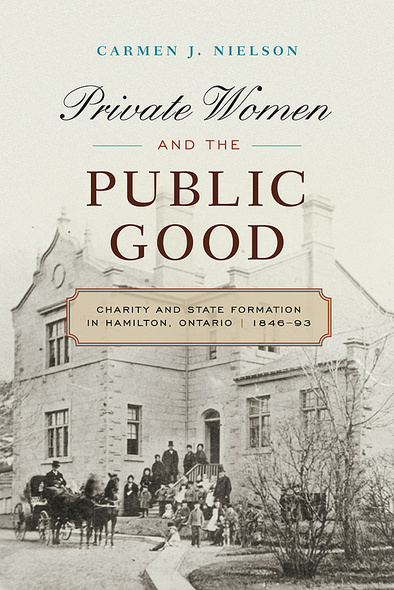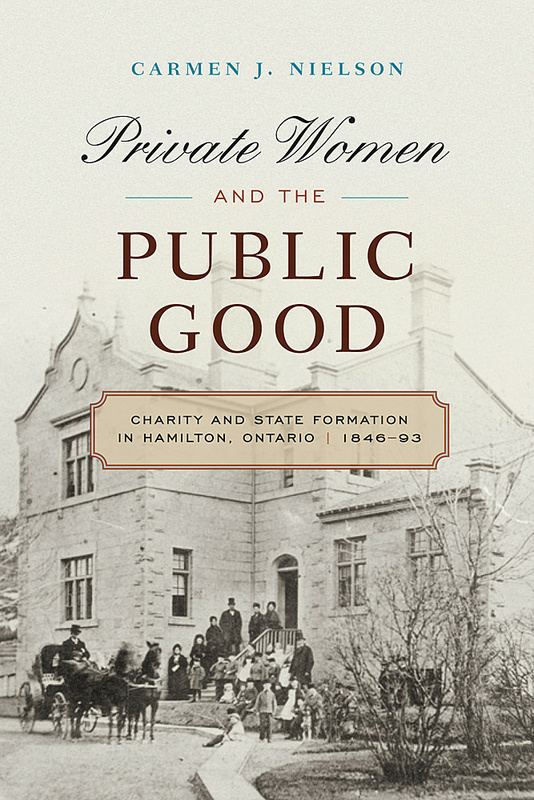
Private Women and the Public Good
Charity and State Formation in Hamilton, Ontario, 1846-93
In 1846, a group of women came together to form what would become one of nineteenth-century Hamilton’s most important social welfare institutions. Through the Ladies Benevolent Society and Hamilton Orphan Asylum, they managed and administered a charitable visiting society, orphan asylum, and aged women’s home.
This fascinating history, which draws from the charity’s meticulous records, offers a valuable framework for a broader study of the movements that shaped Western societies in this era, including an evolving liberal order, the ongoing process of state formation, and the emergence of the public sphere and the question of the place of women within it.
While the women who ran the Ladies Benevolent Society and Hamilton Orphan Asylum managed essential social services in the community, and while these efforts were often publicly financed by municipal or provincial governments, their work was still defined as “private,” limiting its potential to call into question their exclusion from public life.
In Private Women and the Public Good, Carmen J. Nielson explores the history of this pioneering Hamilton charity and demonstrates that despite its notable political significance, women’s charitable work failed to challenge the staunch division of private and public spheres.
This work will be of interest to students of Canadian history, women’s studies, and gender studies.
A very readable, persuasive, and important contribution to the literature on gender and social policy in nineteenth-century Canada written in a way that engagingly connects history with theory.
...Nielson’s well-crafted study provides a unique lens through which to examine gender, the public-private spheres, and politics in nineteenth-century Canada.
A challenging, revisionist view of the relationship between the public and the private that suggests a different approach to understanding the world of female voluntarism and its relationship to state formation.
Carmen J. Nielson is an associate professor of history in the Department of Humanities at Mount Royal University.
Introduction: Gender and the Public Sphere
1 Hamilton, Upper Canada, to 1846
2 A “sufficiently extensive and efficient instrumentality”
3 A Mixed Social Economy
4 The City and the Ladies
5 Public Acts and Private Lives
6 Institutionalization, Adoption, and Apprenticeship
7 Continuity and Change, 1870-93
Conclusion: A Career in Christian Charity
Notes
Bibliography
Index






